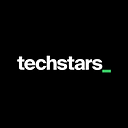Techstars, Two Years Later
by Christian Mouysset, CEO at Tenzo (Techstars Class 78)
My startup, Tenzo completed its Techstars London Accelerator journey at Demo Day on Tuesday, 20 September 2016, as part of Techstars Class 78. Then I was lucky enough to be asked to be a mentor for the Techstars London 2017 program, and Techstars continues to be an important part of the Tenzo journey.
My cofounder Adam and I weren’t too sure what to expect from our Techstars experience, as I had founded and run a chain of restaurants and Adam had both been an early employee at a startup and worked as a associate partner at McKinsey & Co. I admit, given all our startup experience, we wondered if Techstars would be worth it for us.
Now that nearly two years have passed since since that Demo Day, I find myself reflecting on what Techstars meant to Tenzo, and to me — and what it has continued to mean over time.
I hope these thoughts are useful — especially to those of you who are thinking about applying to an accelerator, or are in the pleasant position of weighing offers.
Here are the biggest benefits that we got from Techstars:
Talent
Probably the single biggest benefit for us as a company was the ability to use the Techstars brand to attract talent. Between getting into Techstars and starting the program, we managed to hire a Harvard grad, an Oxford grad, and a seasoned startup veteran to run our tech team. We underpaid everyone for the summer (sorry team — we’re working to fix that!) and they were willing to join for the experience.
In a world where “startup” means anything from “one man in a shed” to “world-class team solving a billion dollar problem,” Techstars helped move us in people’s minds from the former to the latter.
Mentorship and Network
Techstars is huge on this, and for us it was hugely valuable. We met 100 mentors during Mentor Madness — 10 mentor meetings a day for 20 minutes each — and probably another 50 or so over the weeks. For us this was huge. Tenzo was entering a relatively new space in a new market, and our company was just weeks old. In just a couple of weeks, we built a network that might otherwise have taken years.
It also helped us to work on our pitch — and to realize how important pitching is.
Pitching, Pitching, Pitching (and More Pitching)
There was a clock at the entrance to the Techstars London Accelerator office that counted down the days, hours, minutes, and seconds to Demo Day. Way to keep the pressure on!
At first, when it was counting down from 90 days, it felt like we had all the time in the world — needless to say that it felt like it was counting down the minutes in no time at all!
We rehearsed our 5-minute Demo Day pitch every day for the entire month preceding Demo Day — including at Hyde Park Corner and standing on a bench along the canal near Paddington.
At the same time, we were doing 2-minute pitches to a series of 10 investors at lunchtime, so we needed to have both pitches clear in our minds and word-perfect.
Techstars put a huge amount of emphasis on pitching — we practiced our pitch literally hundreds of times. At times it felt like a pain, but in retrospect, I can see the value:
- Being able to articulate our business simply and effectively, every time. Yeah, this seems like a good idea!
- Helps with raising money: also a good idea!
- Looking good on Demo Day: a third good idea.
I was especially grateful for reason three when Demo Day came, and I stepped out on the stage in this room:
Demo Day was exhilarating, and over in no time.
Fundraising
One big reason that early stage startups fail is lack of cash, and Techstars is particularly good at dealing with this need.
Demo Day was the beginning of the process, and ultimately we did close our first round of funding four months after Demo Day — in large part due to Techstars network and connections.
Tangible Benefits
There are hard cash benefits we got from Techstars as well:
- $120,000 cash
- Office space for the summer
- Techstars Associates to help us out
- Various cloud platform credits and other perks that have definitely saved us money over the past couple of years.
A word about the money: You give up 6% of your company for $20,000, and then another $100,000 is a convertible note. Net, that means that Techstars is about an 8% owner on our cap table at the moment.
However, I don’t think that the impact on valuation is the best way to look at Techstars.
You’re living in a world with two outcomes: Your startup fails, or it does not. You want to boost the probability of the latter outcome. Techstars does this. For us, the cost in equity was definitely worth it.
Life’s Journey
On a personal note, I think there’s a big reason to do Techstars — because it’s fun! In the exciting journey that is life, why not add a top-tier accelerator?
We made some great friends along the way, too: Igor from Datasine, Mick from Swiftcomply, Veronica from MyDidimo, Marko from Techstars. Oh, and of course the Demo Day afterparty was great fun!
Closing Thoughts
Startups are hard. You need every edge you can get, and I’d argue that Techstars is a hugely useful one.
For us, and Tenzo, there is no way we’d be where we are today without having gone through this program.
I hope these thoughts have helped you parse the accelerator experience, and particularly what Techstars does best. If you want to see even more, check out this video of Demo Day!

